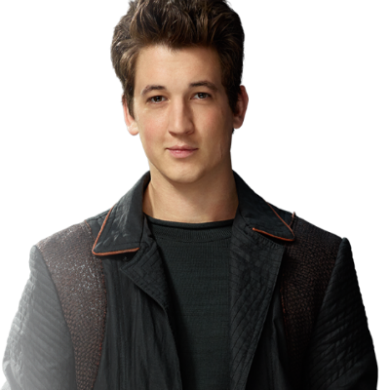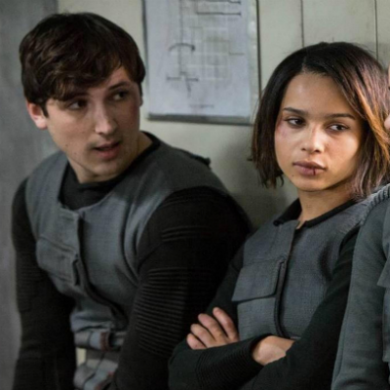DISCLAIMER: This should be pretty obvious, but this post will contain spoilers from both the movie and book “Divergent.” I will only be discussing the first book in the series, which the movie is based on.
Having finished the three-book “Divergent” series just a week before the first movie was set to premiere, I had grown ravenous for a visual depiction of the factioned future Chicago that could go along with the made-up one that was taking over my mind. What was the choosing ceremony going to be like? How will Caleb be portrayed? What will Dauntless headquarters look like? These questions and more flooded my mind as I entered the theater and I prayed that what I was about to see would be an accurate portrayal of the exhilarating and emotional journey that had kept me flipping the pages of a young adult book for hours on end.
Overall, I was not disappointed. Shailene Woodley perfectly portrayed Tris’s struggle to be selfless and brave, and Theo James (although considerably older than his character) managed to embody the brooding Four to a tee. The supporting roles were mostly well-cast too, particularly the perfectly steely Kate Winslet as villainess Jeanine Matthews and Ashley Judd who seamlessly transitioned from loving mom to kick-ass soldier in seconds flat as Natalie Prior. I also loved the setting and costuming, which presented the world of the book earnestly. What the film really excelled at — and probably what most fans assumed it would excel at — was the depiction of the mind-altering simulations that confront individuals with their biggest fears in quick succession.
However, as much as I enjoyed the film, there were a number of points I noticed in the movie that were different from the book, and not in favorable ways. Of course I understand that the movie had to make cuts to make the film a reasonable length and get the PG-13 rating that would allow their target demographic to actually attend, but a few decisions still strike me as bizarre.
1. Peter was too likable.
In the book, Peter is the scum of the earth, and the reader can’t help but despise him for the whole process. I mean, he has been tormenting Tris since the first moment he set eyes on her and plotting ways to get her kicked out of Dauntless — even going so far as to kidnap and attempt to murder her! So why the hell did they cast Miles Teller, who literally only plays the most likable characters in the universe (see: “Footloose” and “The Spectacular Now”)!? Of course, Teller brings charm and humor to Peter that is never present in the books. In the end, audiences find themselves liking Peter and even laugh along when he tells Tris to “put it back on” after she removes her jacket for the first time. In the books, Peter is only supposed to be funny to his group of violent and immoral friends as he mercilessly ridicules Tris, so why are we laughing along with him in the theaters? Maybe if the film had added the scene where Peter stabs out another initiate’s eye in order to move up the ranks we might kind of hate the lovable Miles Teller. Just maybe.
Along the lines of bizarre casting choices, why did I watch a preview for a film where Tris and her brother Caleb are making out just 5 minutes before “Divegent” began? Oh right, because someone had the brilliant idea to cast Woodley and Ansel Elgort as carefree young lovers in “The Fault in Our Stars” and also as complicated siblings in “Divergent.” Besides this little bit of creep factor, though, Elgort was great in his role.
Finally, the film also presents Eric as a bit more forgiving than book-Eric would be, I think. Let me first get out of my system how much film-Eric looked like Macklemore trying to join a biker gang. Okay good, let’s move on. In the scene where Tris finds out she has been kicked out of Dauntless but decides to hop the train and join the activities anyway — which is not in the book — Eric allows her to stay and even seems to admire her ambition. I couldn’t imagine book-Eric ever allowing her on that train if he kicked her out.
2. Wistina was not explicitly stated.
While not really a part of the main plot, the development and fulfillment or Will and Christina’s relationship is one of the most joyful, and then later heartbreaking, arcs of the book. The film points to their relationship a bit by showing them smile at each other more and actually embrace in the corner of the screen during their final scene together, but these subtle clues are not enough to let the non-readers know they are an item. And while Tris having to shoot Will was definitely emotional in the movie, it was not nearly as traumatic as it could have been if we knew that he was not only her good friend, but also her best friend’s boyfriend.
On a similar subject, Al’s affection towards Tris was never mentioned in the film either. That layer of unrequited love made his suicide much more emotional in the book than in the move, although it was still very shocking and sad.
3. Jeanine and the Erudite were present during the final fight scene.
The biggest deviation from the book is centered around the final scene. In the book, Tris must fight a brain-controlled Tobias in order to turn off the simulation, and she succeeds by ceasing to fight him and trusting him to shake the simulation off in the name of their love. Once he does, he turns off the simulation and the pair makes their escape.
In the movie, it’s no longer just Tobias and Tris in the control room. Instead, a few dozen Erudite scientists and Jeanine Matthews herself are present to run the simulation. So when Tobias gets his clear head back, they don’t have a clean getaway. Instead, Tris and Tobias massacre the scientists and use the simulation serum on Jeanine to force her to turn off the simulation. It’s pretty obvious that this new ending was invented to add some more action and give Kate Winslet some more screen-time, but it kind of intrudes on the central relationship in my opinion.
4. Tris’s fear of intimacy became a scene of sexual assault.
TRIGGER WARNING: This section discusses rape and sexual assault.
This change is pretty complicated to talk about. I think most readers will agree that when they were reading through Tris’s fear landscape, they didn’t quite imagine the scene that James and Woodley acted out on the big screen. In the book, Tobias begins kissing and undressing Tris, but it is never described as aggressive or antagonistic. Rather Tris realizes she has a fear of intimacy and affection and has to tell Tobias to stop because she isn’t ready for that level of intimacy yet. However, the movie portrays this scene as Tobias attempting to rape Tris, as he forcefully pins her down and thrusts himself onto her as she screams her objections. Movie-Tris manages to stop him by fighting back physically.
On one hand, the movie version does a good job of showing a female character with agency successfully fight off unwanted sexual assault. This is an important message for many girls, who may think that they have no power or agency during a rape. Although I also want to make the explicit point that a girl (or boy for that matter) is not to blame for a rape just because she or he did not fight back — the blame falls squarely on the rapist that initiated the heinous act. With that caveat in mind, this scene did a good job of showing girls that they can and should fight back in that situation.
On the other hand, the very sudden scene can be traumatic for some viewers and is also not at all necessary. The film seems to confuse Tris’s fear of intimacy with a fear of sexual assault, which are two very different things. Rather than portray Tris as a girl who is afraid to be close to another person, the film probably decided throwing in a rape scene would be more flashy and interesting.
Despite the length of my criticisms, I was mostly impressed with the film adaptation and look forward to the sequels.





interesting………..